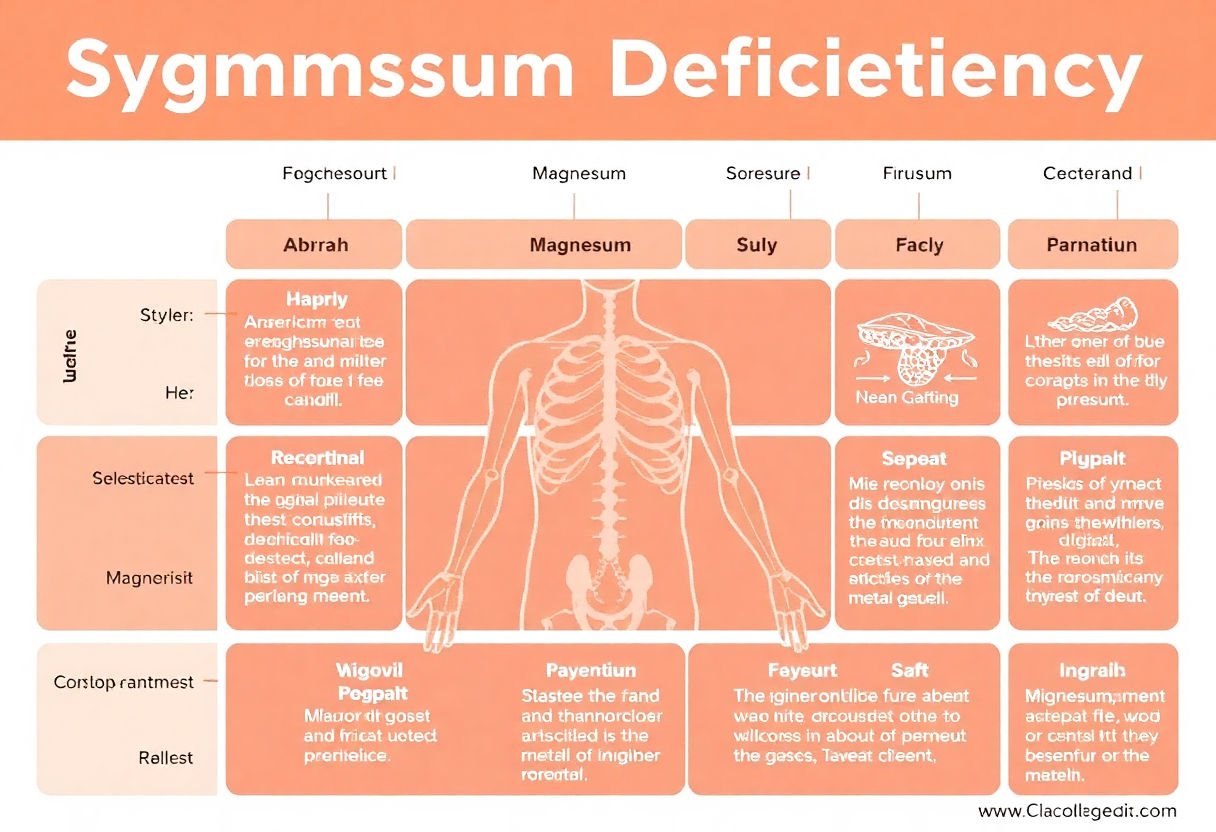In recent years, there has been a growing interest in natural remedies for sleep disturbances, putting substances like magnesium in the spotlight. Magnesium, a key mineral involved in sleep regulation, may hold the secret to restoring restful nights. Powder magnesium, a popular supplement form, may offer an effective means of addressing sleep-related issues, supported by scientific studies demonstrating its benefits. This article delves into the critical role of magnesium in the body, explores the different forms of supplements available, and examines how powder magnesium could potentially transform your sleep quality.venture through the essentials of magnesium supplementation for better sleep.
Key Takeaways
- Magnesium is essential for sleep regulation, playing a significant role in the body’s ability to manage rest.
- Powder magnesium is favored for its ease of use and rapid absorption, making it a popular choice among supplements.
- Research supports magnesium’s benefits in improving sleep quality, particularly in individuals with deficiencies.
- Deficiency in magnesium can lead to restlessness and insomnia, highlighting the need for adequate intake.
- While powder magnesium offers benefits, it’s crucial to be mindful of potential side effects and optimal dosage.
The Role of Magnesium in the Body
Magnesium is a critical element involved in over 300 enzymatic reactions within the human body. Its importance stretches across various physiological functions essential for maintaining optimal health.
One of the primary roles of magnesium is in nervous system regulation. This mineral acts as a natural relaxant, helping to calm neural excitations and supporting the body’s transition into a restful state. It does so by interacting with neurotransmitters like gamma-aminobutyric acid (GABA), which contribute to reducing anxiety and promoting sleep. Magnesium’s calming effect on the nervous system is crucial for those struggling with insomnia or other sleep disturbances.
Additionally, magnesium is vital for muscle relaxation. It functions as a counterbalance to calcium, ensuring that muscle contractions are appropriately regulated. This balance prevents excessive excitation which could lead to restlessness at night, thus facilitating a more tranquil sleeping environment.
The mineral also plays a significant role in maintaining a healthy circadian rhythm, the body’s internal clock that signals when to go to sleep and when to wake up. Studies suggest that adequate levels of magnesium are linked to improved regulation of sleep-wake cycles, which is essential for achieving restorative sleep.
Lastly, magnesium supports the synthesis of melatonin, the hormone responsible for controlling sleep cycles. By contributing to the production of melatonin, magnesium assists in reinforcing a natural sleep pattern, thereby enhancing overall sleep quality.
Incorporating adequate magnesium in one’s diet can thus be considered fundamental not only for general well-being but also for ensuring a sound and restorative sleep.
Understanding Magnesium Deficiency

Magnesium deficiency can be a significant contributor to sleep disturbances. Individuals experiencing a deficiency may experience symptoms such as restlessness, insomnia, irritability, and difficulty concentrating. These symptoms can severely impact the quality of sleep, leaving individuals feeling fatigued and drained upon waking.
The signs of magnesium deficiency often go unnoticed, as they can mimic other health issues. Common indicators include muscle cramps, headaches, and feelings of anxiety. Understanding these signs can be critical, as addressing a deficiency may lead not only to better sleep but also to improved overall health.
Certain factors put individuals at a higher risk of magnesium deficiency. Poor dietary habits, particularly diets low in whole foods and rich in processed foods, are common culprits. Moreover, conditions such as diabetes, gastrointestinal diseases, and excessive alcohol consumption can impair magnesium absorption and utilization. Aging also naturally decreases magnesium absorption, making the elderly more susceptible to a deficiency.
A balanced diet rich in magnesium can help in mitigating these risks. Foods such as leafy green vegetables, nuts, and whole grains are excellent natural sources of magnesium. However, when dietary intake is insufficient to meet bodily needs, supplementation becomes an option.
Identifying magnesium deficiency early can be crucial for those seeking natural remedies for sleep improvement. Consulting a healthcare professional for a proper diagnosis and tailored advice on supplementation can help ensure optimal magnesium levels and, consequently, enhanced sleep quality.
Types of Magnesium Supplements

Magnesium supplements come in various forms, each with unique absorption rates and benefits. Understanding these can help individuals select the most suitable option for their needs.
-
Magnesium Citrate: This is a commonly used form because of its high absorption rate and gentle laxative effect, making it ideal for those who experience constipation. It dissolves easily in water, providing a fast-acting magnesium source.
-
Magnesium Glycinate: Known for its excellent bioavailability, magnesium glycinate is bound with glycine, an amino acid that promotes calmness and relaxation. This property makes it particularly beneficial for those seeking to improve sleep quality and reduce anxiety.
-
Magnesium Oxide: While it contains a higher concentration of magnesium, it is not as easily absorbed as other forms. Its primary use is to relieve digestive issues like heartburn and indigestion rather than serving as the main source for magnesium intake.
-
Magnesium Malate: Often recommended for individuals with chronic fatigue, it combines magnesium with malic acid, an element found in many fruits. This form supports energy production and muscle function, making it a versatile option.
-
Powder Magnesium: This form provides flexibility in dosing and tends to be absorbed more quickly than tablets or capsules, allowing for more immediate effects. It is especially convenient for individuals who might have difficulty swallowing pills or require varying doses.
Choosing the right type hinges on individual health goals and preferences—the correct magnesium supplement can make a significant difference in achieving optimal health and enhancing sleep quality.
Advantages of Powder Magnesium
Powder magnesium offers several notable benefits that make it a desirable choice for those seeking to enhance their sleep quality. One primary advantage is dosage flexibility, allowing users to easily adjust the amount they consume to meet their specific needs. This adaptability can be especially beneficial for individuals who are just beginning magnesium supplementation and those who vary their intake based on dietary changes or health advice.
The format of powder magnesium also facilitates quick absorption into the body. When dissolved in liquid, it becomes more bioavailable, meaning the body can utilize it more efficiently than some other forms. Fast absorption is crucial for sleep support, as it may lead to a more immediate calming effect on the nervous system, potentially helping to promote relaxation before bedtime.
Another practical benefit of powder magnesium is its convenience and ease of use. It can be effortlessly incorporated into a daily routine by simply mixing it with water or another beverage, making it a suitable option for individuals who may have difficulty swallowing pills or capsules.
Moreover, powder magnesium often includes fewer fillers and binders than pill forms, providing a more concentrated source of this essential mineral. This can be particularly advantageous for those who prefer a purer supplement.
In summary, powder magnesium’s flexibility, speedy absorption, and convenience make it an appealing option for individuals aiming to harness its sleep-enhancing potential. These features can contribute to its efficiency as a support tool in achieving restful sleep.
Scientific Studies on Magnesium and Sleep

Recent scientific studies have highlighted the potential benefits of magnesium supplementation in improving sleep quality. Research indicates that magnesium plays a vital role in regulating the neurotransmitters involved in sleep, such as gamma-aminobutyric acid (GABA). By enhancing GABA receptor function, magnesium may promote feelings of calm and relaxation, which are essential for a good night’s sleep.
Several clinical trials have been conducted to explore these effects. For instance, one study found that older adults who consumed magnesium supplements experienced better sleep efficiency, longer sleep duration, and reduced nighttime awakenings compared to those receiving a placebo. Participants noted significant improvements in sleep quality, indicating magnesium’s potential role in mitigating insomnia.
Further research has shown that magnesium deficiency may be linked to sleep disturbances. A study involving individuals with low magnesium levels reported increased insomnia symptoms, which were alleviated after restoring adequate magnesium intake. This suggests that addressing magnesium deficiency could be a viable approach for those struggling with sleep issues.
Moreover, powder magnesium supplements have gained attention due to their quick absorption and ease of use. Unlike other forms, powder magnesium can be mixed with water or juice, allowing for consumption as a calming bedtime ritual. This form also offers dosage flexibility, accommodating individual needs and preferences.
As with any supplement, individual results may vary, and it is advisable to consult a healthcare professional before starting new supplementation, especially for those with existing health conditions or concerns. By integrating powder magnesium with other lifestyle changes, individuals may find an effective strategy for enhancing sleep quality.
Recommended Dosage and Usage Tips

When considering powder magnesium to improve sleep quality, it’s important to adhere to recommended dosages and usage tips for optimal benefits. Typically, the recommended dose for adults is between 310–420 mg of magnesium per day, depending on age and gender. Powder magnesium offers flexibility in adjusting your intake; however, starting with a conservative dose is advisable to assess tolerance and effectiveness.
To maximize its sleep-enhancing effects, consume magnesium powder approximately 30 minutes before bedtime. Dissolve the powder in warm water, as this can aid absorption and promote a calming pre-sleep ritual. Consistency is key; taking it at the same time daily may help establish a routine conducive to better sleep.
When using powder magnesium, it’s essential to consider individual needs and dietary intake. Some individuals may require slightly higher doses due to lifestyle or health conditions that affect magnesium levels. However, exceeding 350 mg from supplements daily is not typically recommended without medical guidance, as excessive intake can lead to unwanted side effects.
For those with sensitive stomachs or digestive issues, gradually increasing the dose can help minimize discomfort. Monitoring your body’s response is crucial, and adjustments should be made based on personal experience and in consultation with a healthcare professional if necessary.
In conclusion, following the recommended dosing guidelines and paying attention to your body’s reactions will help ensure that powder magnesium is used effectively and safely as part of a holistic approach to improving sleep quality.
Potential Side Effects and Precautions

Magnesium supplements, including powder magnesium, are generally safe for most people when used as directed. However, excessive intake can lead to several potential side effects that warrant careful consideration. Common side effects may include digestive issues such as diarrhea, nausea, or abdominal cramping. These symptoms typically arise when magnesium is consumed in large amounts and usually subside once the dosage is reduced.
In more severe cases, particularly with excessive magnesium consumption, individuals might experience symptoms like low blood pressure, irregular heartbeats, or muscle weakness. Although these conditions are rare, they underscore the importance of adhering to recommended dosages.
Additionally, specific populations should exercise precautions when considering magnesium supplementation. Individuals with renal impairment need to be particularly cautious, as compromised kidney function can lead to an accumulation of magnesium in the body, potentially resulting in toxicity. Pregnant or breastfeeding women should also consult healthcare providers before initiating any magnesium supplementation to ensure safety for both mother and child.
It’s advisable to seek medical advice prior to beginning magnesium supplementation, especially for those taking medications for hypertension or other cardiovascular conditions, as magnesium can interact with certain drugs.
Healthcare professionals can provide personalized guidance on appropriate intake levels based on individual health needs and potential interactions with existing medications or conditions. Employing a thoughtful approach to supplementation can maximize benefits while minimizing risks, helping individuals harness the sleep-enhancing potential of magnesium safely and effectively.
Lifestyle Factors for Better Sleep
Enhancing sleep quality often requires a holistic approach where lifestyle changes play a crucial role alongside magnesium supplementation. Incorporating consistent sleep hygiene practices can make a substantial difference. Aim to go to bed and wake up at the same time every day to regulate your body’s internal clock. Additionally, establishing a calming pre-sleep routine, such as taking a warm bath or engaging in meditation, can prepare your body for restful slumber.
Creating a sleep-conducive environment is also fundamental. Ensure your bedroom is cool, dark, and quiet, as these conditions are optimal for sleep. Consider using blackout curtains, earplugs, or a white noise machine to minimize disturbances. Limiting exposure to screens and bright lights an hour before bed can further enhance melatonin production, aiding natural sleep onset.
Diet and exercise are integral lifestyle factors influencing sleep. Consuming a balanced diet rich in vitamins and minerals supports bodily functions, including sleep regulation. Avoid caffeine and heavy meals in the evening, as these can disrupt sleep patterns. Regular physical activity, even as simple as a daily walk, has been shown to improve sleep quality by helping you fall asleep faster and enjoy deeper rest.
Lastly, managing stress and anxiety is vital for better sleep. Chronic stress can significantly impede sleep quality, making relaxation techniques such as yoga or deep breathing exercises beneficial. Prioritize activities that induce relaxation and consider journaling to process thoughts, providing a clearer mind and more peaceful sleep experience. By addressing these lifestyle factors, you can complement the effects of magnesium supplementation in achieving superior sleep quality.
Conclusion
In summary, powder magnesium emerges as a promising solution for individuals seeking to improve their sleep quality, as it addresses key functions such as nervous system regulation and muscle relaxation. The scientific studies reviewed suggest a positive correlation between magnesium intake and enhanced sleep. While the benefits are compelling, it’s crucial to integrate magnesium supplements with broader lifestyle adjustments for optimal results. For those considering this approach, starting with the recommended dosage and consulting a healthcare professional can maximize the potential for better sleep. Future research and development could further refine these findings, offering even more tailored solutions for sleep improvement.
Frequently Asked Questions
Can powder magnesium really help improve sleep quality?
Powder magnesium has been associated with sleep improvement due to its role in regulating neurotransmitters and promoting relaxation. While results can vary, many users report enhanced sleep quality after regular supplementation.
What is the best time to take powder magnesium to aid sleep?
The optimal time to take powder magnesium is typically 30 minutes to an hour before bedtime. This timing allows the magnesium to begin aiding in relaxation, aligning with the body’s natural sleep cycle.
Are there any side effects of taking magnesium powder for sleep?
While magnesium is generally safe, excessive intake can lead to digestive issues, such as diarrhea or stomach cramps. It’s essential to adhere to recommended dosages and consult a healthcare provider if unsure.
How does powder magnesium differ from other forms, like tablets or capsules, in terms of effectiveness for sleep?
Powder magnesium is known for its quick absorption and flexible dosing, which can be advantageous over tablets or capsules. These characteristics may enhance its efficacy for individuals specifically looking to improve sleep.
Is it safe to combine powder magnesium with other sleep aids or medications?
While magnesium can complement certain sleep aids, it’s crucial to consult a healthcare professional before combining it with other medications. This ensures safety and avoids potential interactions.
